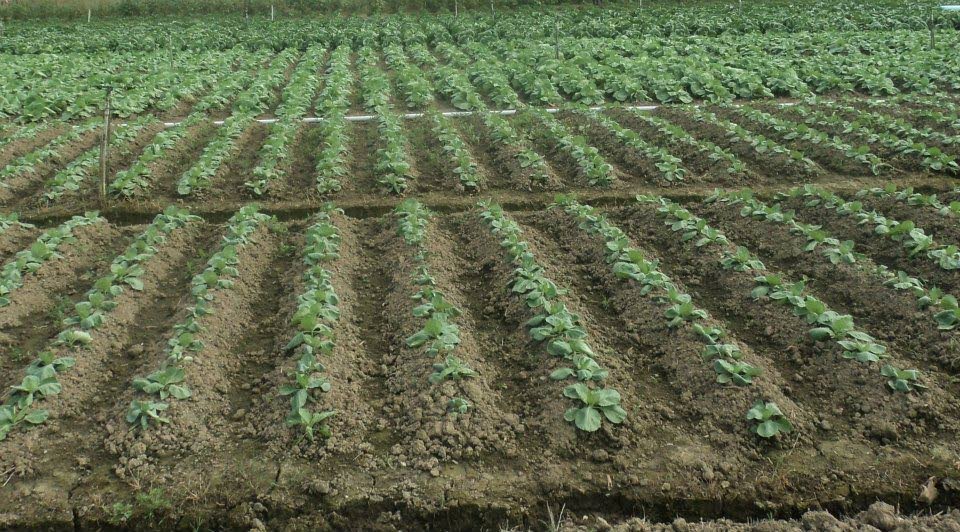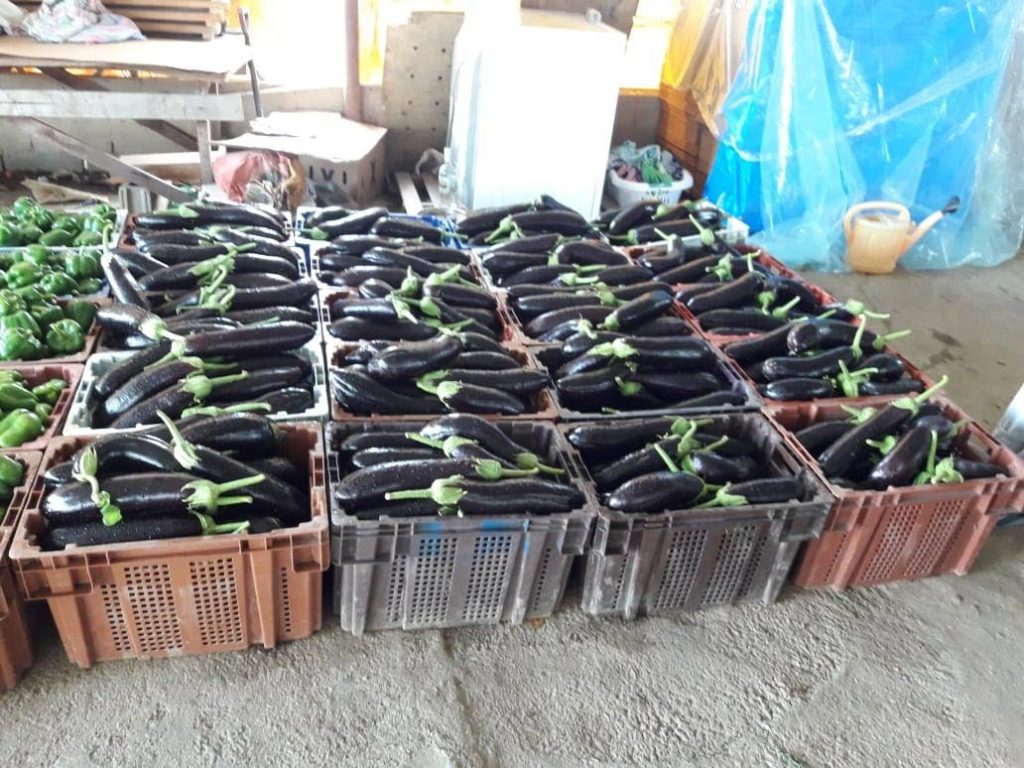Import permits no longer needed to buy seeds

FOOD SECURITY now has legislative backing through amendments to existing law, which will make it easier to import seeds for local production securing TT's ability to feed itself amidst covid19.
Last Sunday, Nirmala Debysingh-Persad, CEO of National Agricultural Marketing and Development Corporation (Namdevco) said the country can sustain itself if covid19 restrictions tighten and food exporting countries shut their doors.
In response to questions last week, Minister of Agriculture, Land and Fisheries, Clarence Rambharat, agreed that TT is food secure, but that is predicated on external factors which he hopes will not adversely affect TT.
“In relation to the question of food security and our ability to feed ourselves – we should be mindful that even with local manufacturing of food and local growing of fresh fruit, vegetables and ground provision – there is reliance on imported seeds, fertilisers, insecticides and herbicides as well as raw material for manufacturers and packaging material. Our food supply is, therefore, constrained by global prices, availability of supplies, reliability of shipping, weather conditions here and abroad and most importantly – availability of Forex.”
President of the Trinidad Unified Farmers Association Shiraz Khan told Newsday last week that uncertainties over imports of products to make feed, limited access to water for irrigation and domestic use, and the harsh weather patterns in the dry season have all come together to put dairy farming in TT and agriculture on the whole, at risk.
Khan, a livestock and dairy farmer by trade, called for immediate investment in food production, and said his trade, dairy farming and livestock farming, could end up in an even worse position because of the economic crisis stemming from covid19 than it is in now, after decades of mistreatment.
That investment, Rambharat said, came in the form of legislation that gave him the power to waive import permits on food items. A special committee was set up to treat with food security chaired by Rambharat, Trade Minister Paula Gopee-Scoon and Works and Transport Minister Rohan Sinanan. Coming out of that committee was the suggestion to amend Section 3 of the Plant Protection Act of 1975.

“Even after it was agreed globally that processed agriculture products should not require import permits, TT had left in place 1975 measures to require import permits on all agricultural produce. This caused bureaucratic delays, increased costs, inefficiencies, delays, disruptions, inequalities, excessive plant quarantine overtime costs, corruption, and low productivity. A measure was included in the Miscellaneous Bill approved by the House of Representatives last Wednesday, to allow the Minister of Agriculture, Land and Agriculture to exempt by order, any item from the import permit requirement set out in the Plant Protection Act.”
Section 3 of the Act states no person shall import into TT any fruits, planting material, plant pest, pathogens, plant products, soil, vegetables or any other prescribed articles (hereinafter referred to as “restricted articles”) unless he first obtains a permit. Failure to adhere to that will result in a $5,000 fine or two year jail term for the first time offender and $10,000 or two years in jail or the repeat offender.
Debysingh-Persad said last week that based on Namdevco’s records, TT has significant volumes of root crops from now until December. There are also significant amounts of fruits and vegetables and the support of the National Seed Centre to provide continuity and to supplement the farms.
Rambharat said farmers have the capacity to ramp up production to meet market demand and the current availability through Namdevco refrigeration storage, free to farmers, is also an added bonus. This is exclusive of more capacity, if necessary, and the expansion of the two Namdevco wholesale markets at Macoya and Debe and the expansion of the Namdevco Farmers Markets throughout TT.
Rambharat said local importers have not yet expressed any concerns over restrictions that may impact food imports. He added that a World Trade Organization (WTO) report dated April 23, referenced 80 countries and customs territories which introduced export prohibitions or restrictions as a result of the pandemic. According to the report, 13 members (39 if the EU member states are counted individually) notified the WTO of new export prohibitions or restrictions. Most of the restrictions were on medical supplies. However, three countries, Kyrgyz Republic, North Macedonia and Thailand announced prohibitions. TT imports wheat from both Kyrgyz Republic and North Macedonia. Macedonia also exports granola bars to TT, Rambharat said, while we import rice from Thailand. The report does not say how long the restrictions are for.
Despite this, Rambharat said there is no evidence as yet that TT is directly impacted. He added that Russia, one of the world’s top wheat shippers, was among the first nations that moved to guard domestic food supplies. He said wheat surplus in the US raised from .94 billion bushels to .97 billion for their ending stock as at April 28. There was also an increase in the ending stock for soybeans and corn. A bushel is a unit of measurement that equals to 35.2 litres in the US and 36.4 litres in the UK. Rambharat said imports have been coming with TT having a 10 week supply.
National Flour Mills (NFM) CEO, Kelvin Mahabir, previously told Sunday Newsday that flour will be available for up to August based on what is currently in storage and well beyond that based on international agreements. Mahabir noted two weeks ago, the G20 heads met virtually and agreed not to impose any tariffs or stop exportation on basic food commodities. With the US being a member and New Orleans a major supplier of TT grains, which he pointed out is reassuring.
The Government, Rambharat said, is not worried about food security at this time but are mindful of long-standing risks and risks that are covid19-specific. He added that the committee set up to deal with food security in the midst of covid19 is an important step and they have been collaborating with importers, manufacturers, supermarkets, the business chambers, TT Manufacturing Association (TTMA), farmers and entrepreneurs. The committee has monitored import cover, customs, foreign exchange availability, agriculture production and risks, he said.
“We have made representations to importers and distributors on the issue of pricing, managing to secure a 50 per cent discount on seed prices from a major importer starting May 4, 2020, through the importer and via agro shops across the country. We have completed the work on the new Seed Distribution Project via the Ministry of Agriculture, Land and Fisheries with the distribution of locally produced seeds to 50,000 households earmarked to start in early May.”
He added: “In relation to the covid19-specific risks, the Government has so far ensured that controls in exporting countries do not affect local food supplies. Delays or cancellations in shipping have not been significant; interruptions of internal transport in exporting countries have not affected supplies; interruptions in labour supply arrangements in exporting countries have not been significant. We continue to monitor costs and are working with local and global partners especially the Poultry Association, the TTMA and the USDA to monitor and manage these issues.”
Looking ahead, Rambharat said the road map team appointed by the Prime Minister is working in seven thematic groups, with agriculture being one. Work has already begun, he said, with a public call for opinions, ideas and views coming out of a meeting on April 24. The deadline for submissions will be on May 8.
At the first meeting, the convenor, Ronnie Mohammed, led discussions on the issue of imports, particularly in the context of the availability of local alternatives. The need to support and stimulate production and market opportunities for young and female food producers was also discussed along with an increase in public education on non-communicable diseases (NCDs). Healthy eating, rest and exercise; balanced diets and increasing the proportion of locally produced food both for home and through the National School Nutrition Programme were issues also addressed at the meeting.


Comments
"Import permits no longer needed to buy seeds"